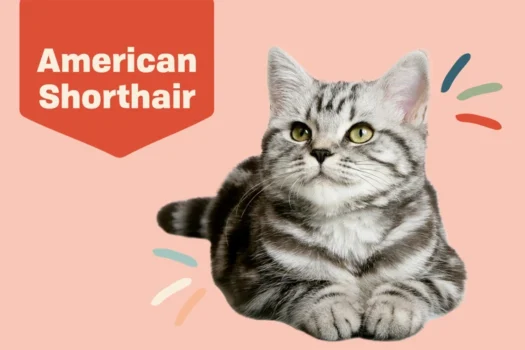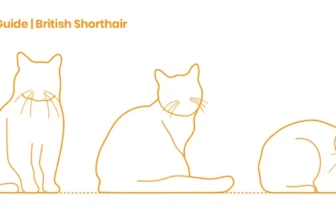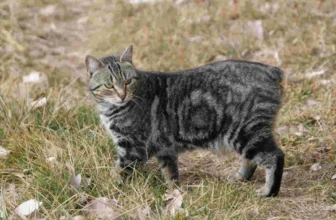As pet owners, we always want our furry friends to be happy and healthy. While American Shorthair cats are generally sturdy and easy to care for, they are not immune to allergies. Recognizing the symptoms of allergies in American Shorthair cats is crucial in managing their health. In this article, we will explore the causes, symptoms, and treatments of allergies in these beautiful feline companions. We will provide practical steps and advice on how to prevent allergies and improve your cat’s quality of life. So, let’s dive in and learn how to recognize and manage allergies in American Shorthair cats.
Symptoms of Allergies in American Shorthair Cats

Recognizing and managing allergies in American Shorthair cats is an essential aspect of their overall health and well-being. Allergies in cats can lead to a wide range of symptoms that can be both uncomfortable and potentially dangerous if left untreated. If you’re a cat owner, it’s important to be aware of these symptoms and take proactive steps to manage them. In this section, we’ll go through some common symptoms of allergies in American Shorthair cats, including sneezing and coughing, itchiness and skin irritation, vomiting and diarrhea, and nasal and eye discharge. If you want to learn more about other health issues that may affect your American Shorthair cat, please check out our article on health issues in American Shorthair cats.
Sneezing and Coughing
American Shorthair cats with allergies often exhibit symptoms such as sneezing and coughing. This can be caused by environmental allergens such as pollen, dust, or mold. Sneezing and coughing can also be indicative of respiratory infections, so it is important to monitor your cat and seek veterinary attention if symptoms persist.
Symptoms of Sneezing and Coughing in American Shorthair Cats:
- Excessive sneezing
- Coughing or wheezing
- Difficulty breathing
- Runny nose
- Nasal discharge
- Lethargy
If your American Shorthair cat is experiencing sneezing and coughing, it may be helpful to limit their exposure to environmental allergens. Keep your home clean and dust-free, and consider using air purifiers or HEPA filters. Additionally, providing your cat with a healthy, balanced diet and regular grooming can help support their overall health and immune system.
If symptoms persist or worsen, it is important to seek veterinary attention. Your veterinarian can perform diagnostic tests to identify the underlying cause of your cat’s symptoms and recommend an appropriate treatment plan.
For more information about maintaining your American Shorthair cat’s overall health and wellness, visit our Healthy American Shorthair Cat page.
Itchiness and Skin Irritation
Itchiness and Skin Irritation
Itchiness and skin irritation are common symptoms of allergies in American Shorthair cats. It is important to take note of how often your cat scratches or licks a certain area of their body, as excessive grooming is a sign of skin irritation or discomfort.
Other visible symptoms of skin irritation may include rashes, hair loss, and scabs. These symptoms can also be caused by other health issues or parasites, so it is important to have a professional diagnosis from a veterinarian.
If you suspect that your American Shorthair cat is suffering from skin irritation caused by allergies, there are a few things you can do to help alleviate their discomfort. Bathing your cat with a hypoallergenic shampoo and conditioner can help soothe irritated skin, but this should not be done too frequently as it can lead to dry skin. Additionally, using a moisturizing spray designed for pets can also help soothe and moisturize irritated skin.
It is important to note that while these remedies may help alleviate symptoms, they are not a substitute for veterinary care. If symptoms persist or worsen, it may be necessary to schedule a visit with a veterinarian to discuss other treatment options.
Internal link: regular visits to a veterinarian can help ensure that any health issues, including allergies, are addressed promptly.
Vomiting and Diarrhea
When a cat experiences vomiting and diarrhea, it could be a sign of an allergic reaction. However, it is important to note that there are many reasons why a cat may vomit or have diarrhea. Some common causes include hairballs, dietary changes, infections, or ingestion of toxic substances.
If your American Shorthair cat is experiencing vomiting and diarrhea, it is crucial to monitor them closely and check if there are any other symptoms such as lethargy or loss of appetite. Consult their vet if vomiting and diarrhea persist for more than 24 hours.
The veterinarian may perform tests to confirm if the symptoms are caused by an allergic reaction or any other underlying health conditions. Treatment may include administering medication or IV fluids to keep your cat hydrated.
In addition to medication, you can help your cat by removing the allergen from their environment or diet. You can also feed them a diet that is easy to digest, or that meets any special dietary needs they may have. Regular grooming can also be helpful in reducing allergens like dust and dander.
It is important to remember that vomiting and diarrhea can be a symptom of many different health issues. If you notice any sudden or severe changes in your cat’s behavior, seek veterinary care immediately.
Internal link: special dietary needs can be an important factor in the prevention and management of digestive problems in American Shorthair cats.
Nasal and Eye Discharge
When a American Shorthair cat suffers from allergies, it can manifest in many ways including through nasal and eye discharge. It is not uncommon for cats to experience runny noses and watery eyes, but if it continuous, it may be signs of allergic reactions. The discharge may be clear or colored, and can cause discomfort and irritation, leading to excessive rubbing of the face and squinting.
Causes of nasal and eye discharge in American Shorthair cats:
- Allergic reactions to environmental irritants such as pollen, mold, or dust.
- Infection, which can be viral or bacterial.
- Blocked tear ducts, which cause tears to overflow and run down the face.
It’s important to take note, as excessive nasal and eye discharge can lead to secondary infections or vision loss if left untreated. If you notice that your American Shorthair cat has developed a runny nose or watery eyes, monitor it closely for any other symptoms.
Treatment for nasal and eye discharge in American Shorthair cats:
To treat nasal and eye discharge caused by allergies, veterinarians may prescribe antihistamines or corticosteroids. Infections caused by bacteria may require antibiotics, while viruses usually require supportive care. If blocked tear ducts are the underlying cause, surgery may be necessary.
It’s important to seek veterinary care as soon as possible if the discharge is persistent or severe.
Preventive measures for nasal and eye discharge in American Shorthair cats:
Avoiding allergens when possible can help prevent issues in cats. Providing regular grooming can also help, keeping irritants like dust and pollen off their fur and skin. Regular vet checkups can also help keep any underlying issues in control.
If you suspect that your American Shorthair cat is suffering from allergies, it’s important to consult with your veterinarian for proper diagnosis and treatment. By taking proactive measures, you can help your cat feel better and reduce their discomfort.
Causes of Allergies in American Shorthair Cats

As much as we love our American Shorthair cats, they are prone to developing allergies. Allergies in cats are often caused by various factors, such as environmental allergens, food allergens, and parasites. It is essential to understand the different causes of allergies in American Shorthairs to help manage and treat them better. Knowing the causes can also help prevent future allergic reactions. In this section, we will discuss the most common causes of allergies in American Shorthair cats. However, it is essential to note that some other factors, such as genetics, age, and underlying health issues, can also trigger an allergic reaction. If you’re concerned about other health issues, check out our articles on genetic health issues in American Shorthair cats, arthritis in Shorthair cats, preventing dental issues in cats, diabetes care in American Shorthairs, and urinary tract issues in Shorthair cats.
Environmental Allergens
American Shorthair cats, like any other cats, can develop allergies to various environmental allergens. These allergens are present in the air, dust, and everyday household items. Common environmental allergens that affect American Shorthair cats include pollen, mold, mildew, dust mites, and cigarette smoke. Environmental allergens can be either seasonal or year-round, and the symptoms can range from mild to severe.
Pollen: Pollen is a common allergen that can cause seasonal allergies in cats. It is produced by plants and can be found in the air, on plants, and on the ground. When a cat inhales pollen, it can cause sneezing, coughing, and itchy eyes.
Mold: Mold is another environmental allergen that can cause allergies in American Shorthair cats. It can grow in damp areas such as bathrooms, basements, and kitchens. When cats inhale or come into contact with mold, it can cause respiratory problems, skin irritation, and other allergy symptoms.
Dust Mites: Dust mites are tiny organisms that live in household dust and can cause year-round allergies. They thrive in warm and humid environments, such as bedding, carpets, and furniture. When cats come into contact with dust mites, it can cause skin irritation, sneezing, and coughing.
Cigarette Smoke: Smoking is harmful to cats, and exposure to cigarette smoke can cause respiratory problems, allergic reactions, and even lung cancer. Smoke irritates the eyes, nose, and throat of cats, leading to sneezing, coughing, and watery eyes.
Household Chemicals: Certain household chemicals can also trigger allergies in American Shorthair cats. Chemicals such as cleaning products, perfumes, and air fresheners can irritate the skin, eyes, and respiratory system of cats.
If you suspect that your American Shorthair cat may have an environmental allergy, it is important to consult a veterinarian for a proper diagnosis. Your veterinarian may recommend allergy testing to determine what allergen is causing the allergy and develop an appropriate treatment plan.
Food Allergens
Food allergies occur when a cat’s immune system reacts to a specific protein in their diet. Common food allergens for American Shorthair cats include poultry, beef, fish, and dairy products. Symptoms of a food allergy include vomiting, diarrhea, and itchy skin.
To determine if your American Shorthair cat has a food allergy, your veterinarian may recommend a food trial. This involves feeding your cat a novel protein source, such as venison or rabbit, for a period of 8-12 weeks. If the symptoms improve during this time, your cat may have a food allergy.
It is important to note that some cats may have a food intolerance, which is different from a food allergy. A food intolerance may not involve the immune system but can still cause gastrointestinal symptoms. Common ingredients that may cause a food intolerance include grains, artificial preservatives, and additives.
To prevent food allergies in American Shorthair cats:
- Choose a high-quality, limited ingredient diet with a novel protein source.
- Avoid giving your cat human food, which can contain allergens.
- Gradually introduce new foods to your cat to minimize the risk of a reaction.
If you suspect your American Shorthair cat has a food allergy, it is important to seek veterinary care. Your veterinarian can provide guidance on proper nutrition and treatment options.
Parasites
Parasites are a common cause of allergies in American Shorthair cats. Fleas, mites, and ticks are the most common parasites that can cause allergies in cats. When these parasites feed on the cat’s blood, they release saliva proteins that can trigger an allergic reaction in some cats. The symptoms usually appear on the cat’s skin, causing itching, rash, and hair loss.
Fleas: These small, nimble insects are a common cause of allergies in cats. Flea bites can cause intense itching and discomfort, leading to skin irritation, hair loss, and infection. Some cats are also allergic to the proteins found in flea saliva, which can trigger an allergic reaction even in small numbers of fleas.
Mites: Mites are microscopic parasites that can live in the cat’s ear canal or on the skin. Two common types of mites that cause allergies in cats are ear mites and mange mites. Ear mites feed on the cat’s earwax and can cause intense itching, head shaking, and ear discharge. Mange mites burrow into the cat’s skin, causing intense itching, hair loss, and scabs.
Ticks: Ticks are small arachnids that can attach themselves to the cat’s skin and feed on their blood. Some cats are allergic to the proteins found in tick saliva, which can cause an allergic reaction. Ticks can carry dangerous diseases such as Lyme disease or Rocky Mountain spotted fever, which can also cause symptoms like fever, lethargy, and joint pain.
To prevent parasite-related allergies, it is important to maintain good hygiene by regularly grooming and cleaning your cat’s bedding. Additionally, it is recommended to use flea and tick prevention products approved by your veterinarian. If you suspect that your cat is suffering from a parasite-related allergy, it is important to consult with your veterinarian for proper diagnosis and treatment.
Diagnosing Allergies in American Shorthair Cats
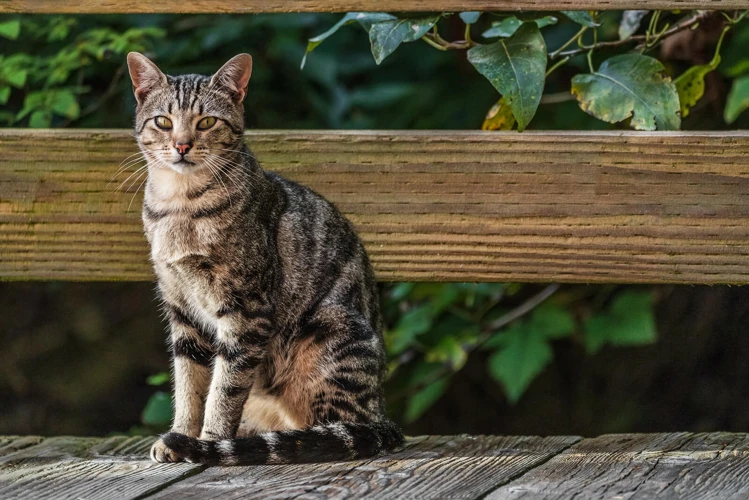
When your American Shorthair cat shows symptoms of allergies, it can be difficult to pinpoint the cause. This is where diagnosing allergies in American Shorthair cats becomes crucial. With the proper diagnosis, you can identify the allergen and take appropriate steps to manage or eliminate it. In this section of the article, we will discuss different methods of diagnosing allergies in American Shorthair cats, including physical examinations and allergy tests. So, if you’re concerned that your furry friend might be suffering from allergies, read on to learn about the different diagnostic techniques available to you.
Physical Examination
During a physical examination, a veterinarian will look for signs and symptoms of allergies in American Shorthair Cats. The examination may include an assessment of the cat’s skin, fur, and overall health. The vet will also ask about the cat’s medical history and any previous issues with allergies or allergic reactions.
During the examination, the vet may also perform some tests to help diagnose the cause of the allergies. This may include skin allergy testing or blood tests to look for specific antibodies that indicate an allergic reaction.
Table:
| What to Expect During a Physical Examination for Allergies in American Shorthair Cats |
|---|
| Assessment of the cat’s overall health and medical history |
| Examination of the skin and fur for signs of irritation or inflammation |
| Assessment of any nasal or eye discharge |
| Possible skin allergy testing or blood tests |
It’s important to bring your American Shorthair Cat to the vet for regular check-ups and to address any allergy symptoms as soon as possible. The earlier the diagnosis, the better the chances of finding the right treatment plan to manage and alleviate any discomfort from allergies.
Allergy Tests
Allergy tests are an important tool for diagnosing allergies in American Shorthair cats. There are different types of allergy tests, and each has its own advantages and disadvantages.
Skin allergy tests involve injecting a small amount of an allergen into the cat’s skin and waiting for a reaction. This test is considered a reliable method for diagnosing environmental allergens, such as dust mites or pollen. However, it can be painful for the cat, and some cats may not react to the allergen.
Blood allergy tests involve drawing a sample of the cat’s blood and testing it for allergen-specific antibodies. This test is less painful than skin allergy tests, but it may not be as accurate. Blood allergy tests are often used to diagnose food allergies or to confirm the presence of environmental allergies.
Elimination diets are another form of allergy testing. This approach involves feeding the cat a diet consisting of a single protein source and a single carbohydrate source for several weeks and monitoring the cat’s symptoms. If the cat’s symptoms improve, the allergen is likely a food allergen. This test requires patience and persistence, but it can be effective in diagnosing food allergies.
Challenge tests are used to confirm a diagnosis of food allergies. This test involves reintroducing the cat to a suspected allergen and observing the reaction. For example, if the cat has been diagnosed with a chicken allergy, the vet may give the cat a small amount of chicken and observe for any allergic reaction. This test should only be performed under the supervision of a veterinarian.
It’s important to note that allergy tests should only be performed by a veterinary professional. Self-diagnosing can lead to incorrect diagnoses and ineffective treatment. A veterinarian can perform the necessary tests and help develop a targeted treatment plan.
| Type of Allergy Test | Advantages | Disadvantages |
|---|---|---|
| Skin Allergy Test | Reliable for diagnosing environmental allergens | Painful for the cat, may not be effective for all cats |
| Blood Allergy Test | Less painful than skin allergy test, good for diagnosing food allergies | May not be as accurate as skin allergy test |
| Elimination Diet | Effective for diagnosing food allergies | Requires patience and persistence |
| Challenge Test | Confirms a diagnosis of food allergies | Should only be performed under the supervision of a veterinarian |
Preventing Allergies in American Shorthair Cats
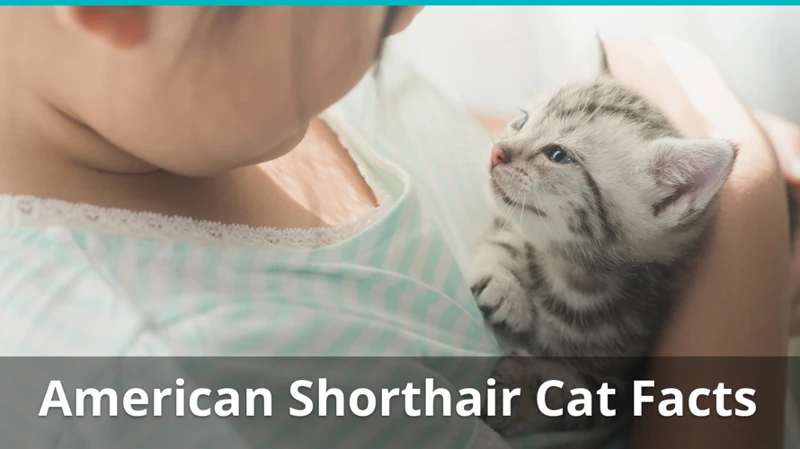
As a loving pet owner, it’s natural to want to prevent your American Shorthair cat from experiencing the discomfort and misery of allergies. Fortunately, there are several steps you can take to reduce the likelihood of your cat developing allergies. By implementing these preventative measures, you can help your furry friend live a happy, healthy, and itch-free life. Let’s take a closer look at some of the most effective strategies for preventing allergies in American Shorthair cats.
Reduce Exposure to Allergens
Reducing exposure to allergens can keep your American Shorthair cat healthy and comfortable. This can be achieved by taking simple measures such as keeping the cat indoors during high pollen days and maintaining a clean living environment. Here are some additional methods to reduce your cat’s exposure to allergens:
| Method | Description |
|---|---|
| Regular cleaning | Clean your house regularly to remove dust, pet dander, and other allergens. Use a vacuum cleaner with a HEPA filter and wet mop hard surfaces. |
| Air purifiers | Use an air purifier with a HEPA filter to circulate clean air throughout your home. This can help remove airborne allergens and pollutants. |
| Reduce humidity | High humidity levels can promote the growth of mold and mildew, which can trigger allergies. Use a dehumidifier to reduce humidity indoors. |
| Allergen-proof bedding | Use allergen-proof covers for your cat’s bedding and wash it regularly to remove allergens. |
Additionally, avoid using perfumes, scented candles, and air fresheners in your home. As they can trigger allergic reactions in cats. Always make sure to ask your veterinarian for additional advice on managing your cat’s allergies.
Feed a Healthy Diet
Feeding a healthy diet to your American Shorthair cat is a crucial step in preventing and managing allergies. A well-balanced diet that meets all nutritional requirements can help strengthen the immune system and reduce the risk of allergic reactions. Here are some tips to keep in mind when feeding your cat:
- Choose a high-quality cat food: Look for a cat food that is formulated with high-quality protein sources, essential vitamins and minerals, and no artificial additives. Avoid cat foods with fillers such as grains, corn, and wheat as these can trigger allergies in some cats.
- Provide plenty of fresh water: Make sure your cat always has access to clean, fresh water. Dehydration can weaken the immune system and exacerbate allergies.
- Consider a hypoallergenic diet: If your cat suffers from food allergies, switching to a hypoallergenic diet may help. These diets are formulated with novel protein sources that are less likely to cause allergic reactions.
- Don’t overfeed your cat: Overfeeding can lead to obesity, which can further compromise your cat’s immune system and increase the risk of allergies. Follow feeding guidelines on the cat food label and monitor your cat’s body condition regularly.
- Supplement with omega-3 fatty acids: Omega-3 fatty acids have anti-inflammatory effects and can help reduce symptoms of allergies. You can supplement your cat’s diet with fish oil or look for cat foods that contain omega-3 fatty acids.
By following these tips and providing a healthy diet for your American Shorthair cat, you can help prevent and manage allergies, and keep your furry friend happy and healthy.
Regular Grooming
Keeping your American Shorthair cat well-groomed is an essential part of preventing allergies. Regular grooming can help to remove allergens from their coat and skin, preventing them from being inhaled or absorbed through the skin. Here are some tips for keeping your American Shorthair cat well-groomed:
- Brush your cat: Regular brushing will help to remove loose hair and dander, preventing it from accumulating in your home. Use a soft-bristled brush to avoid irritating their skin.
- Bathe your cat: Though cats don’t need regular baths, a bath can help to remove allergens and soothe their skin. Use a cat-specific shampoo and avoid getting water in their ears.
- Trim their nails: Long nails can trap dirt and allergens, leading to skin irritation and infections. Use cat-specific nail clippers and avoid cutting the quick.
- Clean their ears: Use a cat-specific ear cleaner and cotton balls to clean your cat’s ears regularly. This will help to prevent ear infections and reduce the risk of allergies.
- Wipe their eyes and nose: Using a damp cloth or tissue, gently wipe away any discharge around your cat’s eyes and nose. This will help to prevent irritation and reduce the risk of infections.
Regular grooming is crucial in preventing allergies in American Shorthair cats. Make sure to establish a routine and stick to it to avoid any potential allergen buildup. Don’t forget to consult with your veterinarian for any additional advice and guidance.
Treating Allergies in American Shorthair Cats
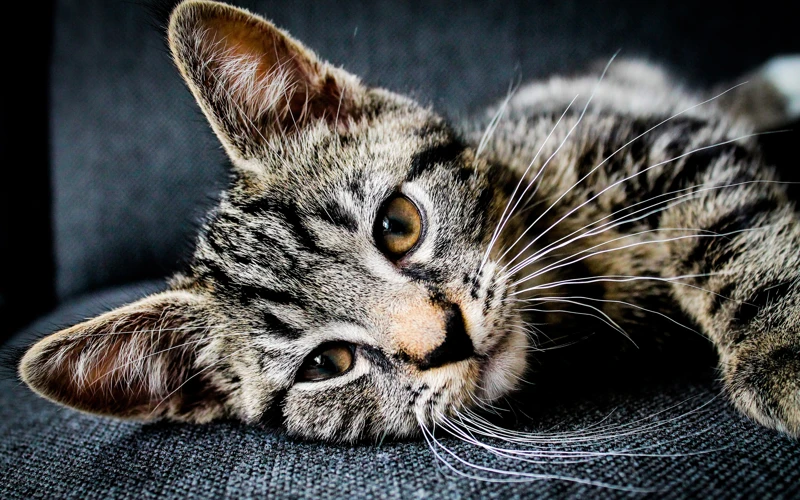
We all want our American Shorthair cats to be healthy and happy, but allergies can put a damper on their wellbeing. If your cat is experiencing allergy symptoms, it’s important to seek proper treatment. There are different options available for treating allergies in American Shorthair cats, and working closely with your veterinarian can help determine the most effective course of action. Let’s explore some of the common methods used for addressing allergies in cats.
Antihistamines
Antihistamines are a common medication used to treat allergies in American Shorthair cats. These medications work by blocking the production of histamines, which are chemicals released by the body during an allergic reaction. Histamines are responsible for causing many of the symptoms associated with allergies, such as itching, swelling, and inflammation.
Benefits of Antihistamines for Allergies in American Shorthair Cats:
- Relieves itching and skin irritation
- Reduces inflammation and swelling in the body
- Can help prevent sneezing and coughing
- May reduce the amount of nasal and eye discharge
Antihistamines are available in several forms, including pills, capsules, and liquids. Some common antihistamines used for American Shorthair cats include diphenhydramine, loratadine, and cetirizine. When selecting an antihistamine medication for your cat, it’s important to choose one that is specifically formulated for cats and to consult with your veterinarian first.
Potential Side Effects of Antihistamines for Allergies in American Shorthair Cats:
- Drowsiness and lethargy
- Dry mouth and nose
- Upset stomach and diarrhea
- Difficulty urinating
It’s important to monitor your cat for any potential side effects and to follow the instructions provided by your veterinarian. Antihistamines should never be given without first consulting with your veterinarian, as they can interact with other medications your cat may be taking or worsen underlying health conditions.
Antihistamines can be an effective way to manage allergies in American Shorthair cats. They work by blocking the production of histamines, which can relieve many of the symptoms associated with allergies. However, it’s important to choose an appropriate medication and to monitor your cat for any potential side effects. As always, consult with your veterinarian before starting any new medications or treatments for your cat.
Corticosteroids
Corticosteroids are often prescribed by veterinarians to help manage allergies in American Shorthair cats. These medications are powerful anti-inflammatory agents that can help reduce symptoms such as itching and skin irritation. However, they should only be used under the guidance of a veterinarian as they can have potential side effects.
How do corticosteroids work?
Corticosteroids work by suppressing the immune system’s response to allergens, thus reducing inflammation and other symptoms. This helps to provide relief to the American Shorthair cat suffering from allergies.
Types of corticosteroids
There are different types of corticosteroids available for use in cats. The most commonly prescribed are prednisone, prednisolone, and dexamethasone. These medications are available in different forms, including pills, injections, and creams.
Potential side effects of corticosteroids
Like any medication, corticosteroids can have potential side effects, including:
- Increased thirst and urination
- Weight gain
- Increased appetite
- Behavioral changes, such as aggression or lethargy
- Increased susceptibility to infections
- Diabetes mellitus
In some cases, long-term use of corticosteroids can lead to more serious side effects, such as Cushing’s disease. It is important to consult with a veterinarian before using corticosteroids for managing allergies in American Shorthair cats.
Conclusion
Corticosteroids can be an effective treatment for managing allergies in American Shorthair cats. However, they should only be used under the guidance of a veterinarian and potential side effects should be closely monitored. If you notice any unusual symptoms in your cat while administering corticosteroids, speak to your veterinarian immediately.
Immunotherapy
Immunotherapy is a treatment option for American Shorthair cats with allergies that involves administering small doses of the allergen(s) that trigger their response, gradually increasing the dose over time. This exposure aims to desensitize the cat’s immune system, ultimately reducing or even eliminating their allergic reactions.
Here are a few things to keep in mind regarding immunotherapy:
- Immunotherapy can take several months or even years to work, so patience is key.
- It is not always 100% effective, although it may still result in noticeable improvement.
- The treatments are usually given via injection, so it may not be suitable for all cats, especially those who do not tolerate needles well.
- Immunotherapy should only be performed by a veterinarian who is specialized in allergies and familiar with the correct dosages and procedures.
There are two types of immunotherapy for American Shorthair cats with allergies: subcutaneous immunotherapy and sublingual immunotherapy. Subcutaneous immunotherapy involves injections under the skin, while sublingual immunotherapy involves small drops of allergen under the tongue.
It’s worth noting that:
- Subcutaneous immunotherapy is generally considered the more effective of the two.
- Sublingual immunotherapy is a relatively new approach, and research is still ongoing as to its efficacy.
- Both approaches require a customized treatment plan for each cat, based on the results of allergy tests and the severity of their symptoms.
- Owners should continue to monitor their cat’s symptoms and inform their veterinarian if there is no improvement or if they experience any adverse reactions.
Immunotherapy can be a promising option for managing allergies in American Shorthair cats who do not respond well to other treatments or for whom avoidance of allergens is not practical. As with any treatment, it is essential to have a thorough conversation with a qualified veterinarian to weigh the risks and benefits before starting immunotherapy.
Home Remedies for Allergies in American Shorthair Cats
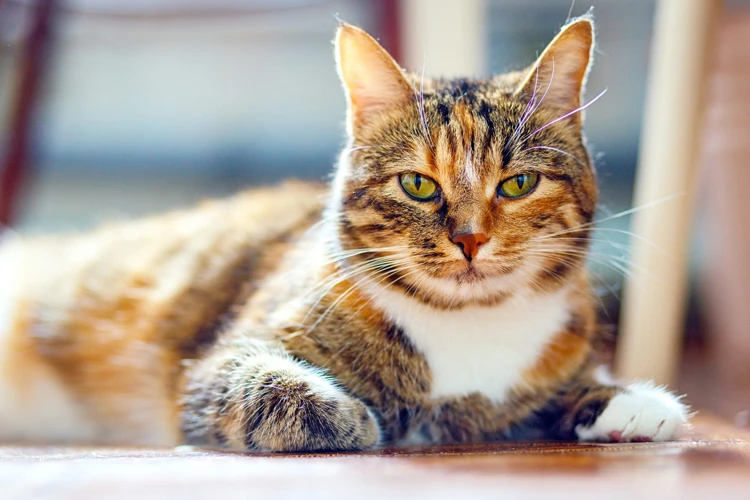
If you’re looking for natural ways to alleviate your American Shorthair cat’s allergy symptoms, you’re in luck! There are several home remedies that may provide relief. However, it’s important to consult with your veterinarian before trying any new treatments, especially if your cat is already on medication. Keep reading to discover some potential home remedies for managing allergies in American Shorthair cats.
Apple Cider Vinegar
One potential home remedy for managing allergies in American Shorthair Cats is apple cider vinegar. This type of vinegar is widely used for its antibacterial and antifungal properties. It can also be used to alleviate itchiness and skin irritation caused by allergies.
To use apple cider vinegar for your cat, start by diluting one part vinegar with one part water. Use a cotton ball or clean cloth to apply the solution to your cat’s itchy skin or irritated ears. Repeat once or twice a day as needed.
Important note: Do not apply apple cider vinegar to open wounds or raw skin as it may cause a burning sensation and make the condition worse. Always consult with your veterinarian before trying any home remedies for your cat’s allergies.
Other potential home remedies for allergies in American Shorthair Cats include coconut oil and probiotics. Coconut oil can be applied topically or added to your cat’s food to help soothe itchy skin. Probiotics may also be beneficial in promoting a healthy immune system and reducing the risk of allergic reactions. However, always consult with your veterinarian before attempting to treat your cat’s allergies at home.
Remember, while home remedies may provide temporary relief for your cat’s allergies, it is important to address the root causes of the allergies through proper diagnosis and treatment by a professional veterinarian.
Coconut Oil
Coconut oil has become a popular home remedy for various health issues, including allergies in American Shorthair cats. It is rich in medium-chain fatty acids that have anti-inflammatory and anti-bacterial properties, making it an effective treatment for skin irritations caused by allergies.
To use coconut oil as a remedy for allergies in American Shorthair cats, simply apply a small amount of coconut oil directly to the affected area. You can also mix a small amount with your cat’s food, as it may also help boost their immune system.
It is important to note that while coconut oil is generally safe for cats, it should be used in moderation. Too much coconut oil may cause diarrhea or other digestive issues. Additionally, if your cat’s allergies are severe, coconut oil may not be strong enough to treat them effectively.
Here are some potential benefits of using coconut oil for allergies in American Shorthair cats:
- Anti-inflammatory properties: Coconut oil’s anti-inflammatory properties can help soothe skin irritations caused by allergies. Its lauric acid content has also been shown to reduce inflammation and promote wound healing.
- Antibacterial properties: Coconut oil contains caprylic acid and capric acid, which have been shown to have antibacterial properties that may help prevent secondary infections caused by allergy-related scratching.
- Boosts the immune system: Coconut oil contains fatty acids that can help boost the immune system, making it easier for your cat to fight off allergens and other pathogens. Additionally, it may help reduce the frequency and severity of allergic reactions over time.
Coconut oil can be a useful home remedy for managing allergies in American Shorthair cats. However, before using coconut oil or any other home remedy, it is important to speak with your veterinarian to determine if it is safe and appropriate for your cat.
Probiotics
Probiotics are beneficial bacteria that help promote digestive health in cats, which can also reduce the symptoms of allergies. Giving your American Shorthair cat probiotics can help strengthen their immune system and lessen the severity of their allergic reactions.
Benefits of Probiotics
- Improve digestion and absorption of nutrients
- Boost immune function
- Reduce inflammation in the gut
- Prevent harmful bacteria from multiplying in the gut
- Improve overall gut health
There are several types of probiotics that are safe for cats, including lactobacillus acidophilus, bifidobacterium bifidum, and enterococcus faecium. You can find probiotics in the form of supplements or in some cat foods. It is important to choose a high-quality probiotic product that is specifically designed for cats.
Feeding Probiotics to Your Cat
- Consult with your veterinarian before starting your cat on probiotics
- Gradually introduce probiotics into your cat’s diet to avoid digestive upset
- Follow the recommended dosage instructions on the product label
- Continue to feed probiotics to your cat regularly to maintain a healthy gut
If you are unsure about which probiotic supplement to use for your American Shorthair, consult with your veterinarian. They can recommend a high-quality product that is safe for your cat and may help reduce their allergy symptoms. Remember to always follow the recommended dosage instructions and monitor your cat’s response to the probiotics.
When to See a Veterinarian
It can be difficult to determine when to seek veterinary care for your American Shorthair cat’s allergies. However, some signs that indicate a visit to the veterinarian are necessary include persistent symptoms that do not improve with home management, such as excessive scratching or chewing, recurrent infections, and respiratory problems.
Additionally, if your cat experiences severe allergic reactions, such as anaphylaxis, which is characterized by difficulty breathing, swelling of the face, lips, or tongue, and collapse, it is imperative to seek immediate veterinary attention. Anaphylaxis is a life-threatening condition that requires fast and intensive treatment.
It is crucial to remember that medical intervention is necessary to manage allergies in American Shorthair cats effectively, and prolonged untreated allergic reactions can lead to further health complications. If you suspect that your feline friend is exhibiting signs of allergies, make an appointment with a veterinarian immediately to determine the underlying cause and the best treatment options for your cat.
Conclusion
In conclusion, recognizing and managing allergies in American Shorthair cats is crucial for their health and well-being. As a cat owner, it is essential to be aware of the symptoms of allergies, which can range from sneezing and coughing to skin irritation and vomiting. Understanding the underlying causes of allergies, such as environmental allergens, food allergies, and parasites, can also help prevent and manage allergic reactions.
Diagnosing allergies in American Shorthair cats involve physical examination and allergy tests, and early detection is critical to managing the condition effectively. Cat owners can also take proactive measures to prevent allergies in their pets. These measures include reducing exposure to allergens, feeding a healthy diet, and regular grooming.
When it comes to treating allergies in American Shorthair cats, antihistamines, corticosteroids, and immunotherapy are some of the common options available. However, some mild cases of allergies can be treated with natural home remedies like apple cider vinegar, coconut oil, and probiotics.
In the event of persistent or severe allergic symptoms, it is essential to seek veterinary care immediately. With proper recognition, prevention, and management, American Shorthair cats can live happy, healthy lives, and enjoy the company of their human families for many years.
Frequently Asked Questions
What are some common environmental allergens for American Shorthair cats?
Common environmental allergens for American Shorthair cats include pollen, dust mites, mold, and cigarette smoke.
Can American Shorthair cats develop food allergies?
Yes, American Shorthair cats can develop food allergies to ingredients such as beef, chicken, fish, and dairy products.
How can I tell if my American Shorthair cat has allergies?
Symptoms of allergies in American Shorthair cats can include sneezing, coughing, itchiness, skin irritation, vomiting, diarrhea, nasal and eye discharge.
Can parasites cause allergies in American Shorthair cats?
Yes, parasites such as fleas and mites can cause allergies in American Shorthair cats.
What types of allergy tests are available for American Shorthair cats?
Types of allergy tests for American Shorthair cats include skin tests, blood tests, and elimination diet trials.
How can I reduce my American Shorthair cat’s exposure to allergens?
You can reduce your American Shorthair cat’s exposure to allergens by keeping your home clean, using air purifiers, and avoiding smoking indoors.
Can I give my American Shorthair cat human allergy medication?
No, you should not give human allergy medication to your American Shorthair cat without consulting with a veterinarian first.
What are some potential side effects of corticosteroid treatment for American Shorthair cat allergies?
Potential side effects of corticosteroid treatment for American Shorthair cat allergies can include increased thirst and appetite, weight gain, and weakened immune system.
Are there any natural remedies that can help with American Shorthair cat allergies?
Natural remedies such as apple cider vinegar, coconut oil, and probiotics may provide some relief for American Shorthair cat allergies, but you should discuss any treatments with your veterinarian first.
When should I take my American Shorthair cat to the veterinarian for allergies?
If your American Shorthair cat is experiencing persistent or severe allergy symptoms, such as difficulty breathing or swelling, you should take them to the veterinarian immediately.

